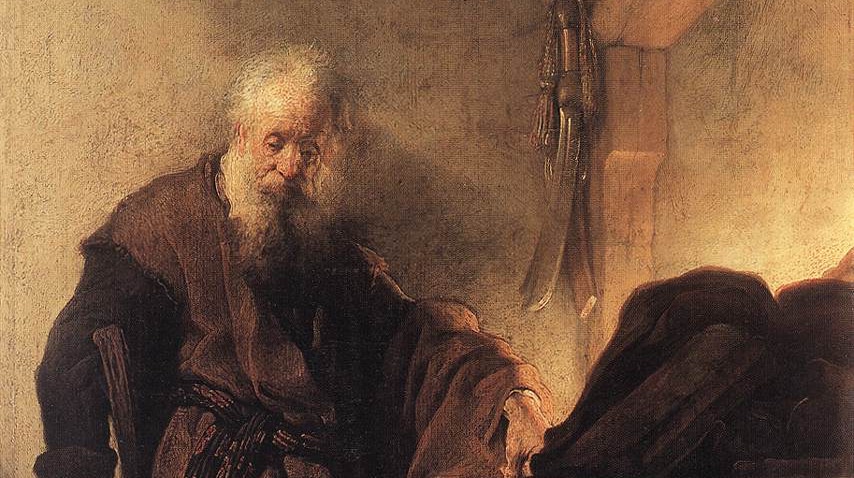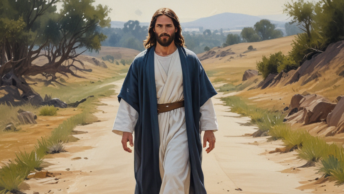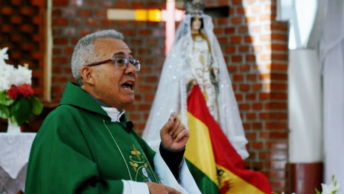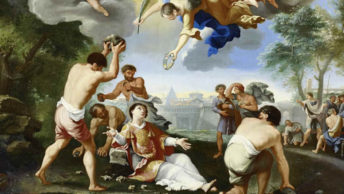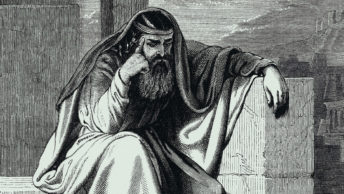There are no coincidences or happy breaks in the life of believers, but only the unfolding of God’s plan; so often mysterious, obscure and, yes, even painful, but with fool proof guarantee of success in the Resurrection of Christ.
Today is Father’s Day. In the eyes of this world, it is certainly a much smaller occurrence than Mother’s Day. Cynically, some might believe that, if we have it at all, it is so that those merchants who sell golf equipment and hand and/or power tools can have a special sale.
I have said it in the past and I want to repeat it now: the forces of evil are using subtle, but very effective ways, to destroy the Christian family which is a divine institution. They know that, likely, it might backfire if they were to criticize or belittle women in any shape or form, hence, for the last 40 years or so, the portrayal of men, especially married men and fathers, has resorted to creating a caricature of married men and fathers, made of incompetence, density of intellect, lack of sensitivity and sore need for relying on their women to fix things in the family.
If you have time, go to read what the Old Testament says about fatherhood especially in the Sapiential Books. You will be shocked to notice how the caricatures of a father intend to destroy and undermine what those Books of Wisdom recommend in order to keep families from experiencing tragedies of all sizes.
It is no coincidence that St. Paul, in his 2nd Letter to the Corinthians (5:6-10), uses the term “courageous” referring to himself as FATHER. The title of “father” is the only title that he demanded to be used by his people when addressing him:
Even if you should have countless guides to Christ, yet you do not have many fathers, for I became your father in Christ Jesus through the gospel. (1 Corinthians 4:15)
There was a movie which I strongly recommend you all to watch in DVD form titled “Courageous.” It is all about Christian fatherhood and what that entails. Luckily you might still be able to find it. The movie is very clear about the immense value, the crucial role of fathers in their family and, consequently, in society as a whole. Courage is a contribution sorely missing in our world, especially in our Western world. As the genuine father of his congregation, St. Paul feels the need to remain with them to help them through the battles of life even though his inner longing is to be with Christ in heaven.
With this thought in mind we should look into the two parables that Jesus (Mark 4:26-34) offers to our consideration on Father’s Day. They, too, are about courage and the Kingdom of God. First of all, we should get a clearer concept of the term “Kingdom of God.” Since it is mysterious, we resort to equating it to heaven.
In reality, heaven is the conclusion, the end result of the Kingdom of God. If we are to identify it by using just one word, that word must be “Jesus.” Jesus is God’s loving, direct, everlasting intervention into our life to make us children of the Father so that our Father in heaven may have us always in his loving embrace even whenever we feel isolated, confused, hurting, lost, overwhelmed; i.e. whenever we need courage ourselves or someone next to us to be courageous.
In the first parable, the farmer is expected to be courageous throughout the whole process of the grain’s lifespan. From tilling and sowing all the way to harvesting, courage is demanded of him for himself and for his family. He has to give it his all. He cannot stop after tilling the soil; he cannot give up right after sowing. He cannot change jobs if there are problems like diseases, droughts, calamities or adverse conditions. As he makes sure that he has done all that is expected of him, he has to relinquish everything else of this process of the grain’s lifespan in the hands of God. The rain and the snow, the sun and the clouds, the cold and the heat are all beyond his control and efforts: he must have courage and elicit courage from his family to sustain hope that the harvest will be good.
A Christian father has to have courage to assure the growth to maturity, responsibility, accountability and productivity of all his children, besides his own, before God. The number of times in a single week in which a Christian father is expected to show courage to sustain hope are practically too many to count. Yet, his whole family depends on it.
The second parable, the one about the mustard seed, drives home a similar point about courage. Due to unforeseeable situations and adverse conditions, at times, the means available are as small as that tiny mustard seed. If a father loses his foothold on the rock that is God the Father, any difficulty, not just big ones, might be enough for him to throw in the towel and to call it quits. Courage is once again crucial for himself and for his family because, as a believer, he should never forget that God has a deliberate penchant for smallness and insignificance to create incredibly beautiful results.
A tiny mustard seed grows, for sure, to be a tree big enough to shelter birds and their nests. Courage is needed in order to resist the temptation to look at only what is offered us by the world, by the community, by society. A courageous father looks instead at the hidden presence and power of his God and Father in heaven. He knows that nothing is impossible with God. He reminds himself and his family that if God is for them who can be against them?
Hopefully, today, we have become more aware of the battle waged against fathers by this secular and godless world. We take these two parables as a strong and sustained invitation to hope, to persevere, to be courageous, to keep going in spite of all difficulties. We take them also as a call to our duty to entrust all Christian fathers to the Lord so that all of them may join us in sharpening our spiritual senses to be able to detect the countless signs of God’s presence and care all around us, so that we may all live with courage and unwavering hope.

